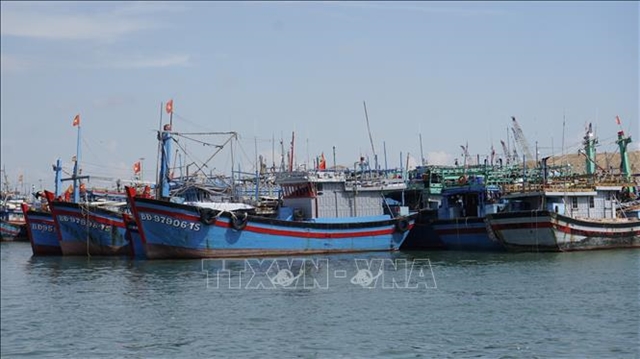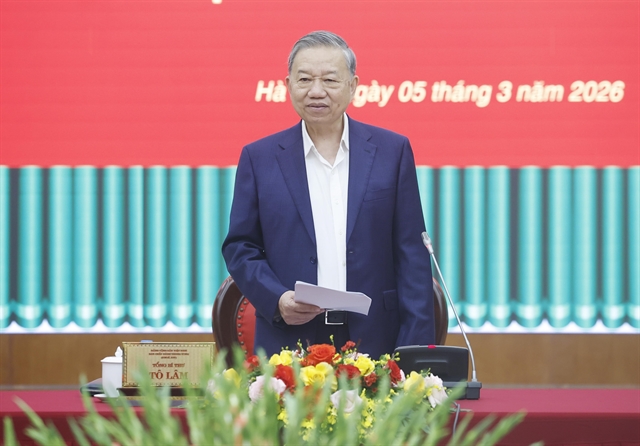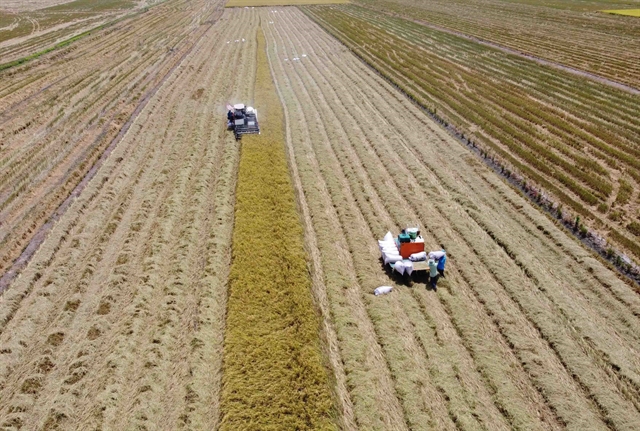 Society
Society

 |
| Rice fields belonging to members of the Thạnh Hưng Agriculture Services Co-operative meeting VietGAP standards in Long An Province’s Kiến Tường Town. — VNA/VNS Photo Vũ Sinh |
LONG AN — The Cửu Long (Mekong) Delta province of Long An has established more agricultural co-operatives with links to companies to secure outlets and stable incomes for farmers.
This year, it has set up 17 co-operatives, taking the total number to 287, according to its Co-operative Alliance.
Of them, 221 are agricultural co-operatives with a total of 4,221 members.
The sector has achieved average revenues of VNĐ1.2 billion (US$50,200) a year and profits of VNĐ81 million ($3,400).
Many of them actively participate in restructuring agricultural production and making their localities new-style rural areas, according to the provincial Department of Agriculture and Rural Development.
The Phước Thịnh Service Trading Production Agriculture Co-operative in Cần Giuộc District’s Phước Hậu Commune is one of the top producers of clean vegetables.
It has helped build a clean vegetable brand name for the district by adopting Vietnamese good agricultural practices (VietGAP) standards and having guaranteed outlets for its 100 members but also non-members.
Đặng Duy Dũng, its director, said members grow more than 30ha of vegetables to VietGAP standards.
The vegetables are planted in nets or polygreen houses equipped with automatic irrigation facilities and use organic fertilisers, he said.
It has contracted with supermarkets and kitchens of companies and schools to supply seven tonnes a day, he said.
It buys vegetables from its members at higher prices than traders pay to ensure they get steady incomes, he said.
Cần Giuộc, the province’s largest vegetable producer, grows them on more than 1,700ha, using advanced techniques on 1,140ha.
Ngô Quốc Bảo, head of the Cần Giuộc Bureau of Agriculture and Rural Development, said his agency has established a clean vegetable co-operatives alliance in the district to secure outlets for the co-operatives’ products.
Many co-operatives in the province use advanced techniques to grow rice, dragon fruit and others to meet the requirements of the domestic and export markets.
This has helped dragon fruit farmers reduce labour costs and save water, fertilisers and pesticides, increasing their income by VNĐ 2.5-5 million ($100-200) per hectare compared to traditional methods, according to the department.
Nguyễn Quốc Trịnh, chairman of the provincial Dragon Fruit Growers Association, said the use of advanced techniques would help develop dragon fruit farming towards concentrated growing areas and large-scale production, and these would help develop linkages between various production and consumption stakeholders to improve export value.
“Some 10 per cent of the province’s dragon fruit co-operatives have an active role in securing their outlets.”
The Tầm Vu Dragon Fruit Co-operative in Châu Thành District has more than 40 members growing the fruit on 50ha, mostly to VietGAP or Global GAP standards.
It has exported to China, the US, EU, Japan, Singapore, and other markets.
Trương Quang An, its director, said the COVID-19 pandemic affected the sales of dragon fruits in the past two years but the co-operative’s members still had steady incomes because of its diversified export markets.
It has contracts with its members to buy their fruit at a minimum price of VNĐ10,000 a kilogramme to ensure they do not lose, he said.
“When the market price is higher than the floor price, the co-operative will pay members VNĐ2,000-3,000 more for a kilogramme than that.”
Targets
The province plans to develop another 100 agricultural co-operatives and co-operative groups each and an alliance of agricultural co-operatives by 2030.
It aims to have at least 20 per cent of all co-operatives using advanced techniques by 2030, and at least 50 per cent of them linked up with companies under value chains.
It also aims to have at least 10 co-operatives sign up for the “One Commune - One Product” national programme by then.
To achieve these targets, it will provide training in professional skills for managers of co-operatives, carry out trade promotions and discover new markets.
Nguyễn Chí Thiện, deputy director of the department, said: “The province will [take measures to] improve the functioning of co-operatives, produce agricultural products to VietGAP standards, and establish value chains for agricultural products to secure reliable outlets.” — VNS




